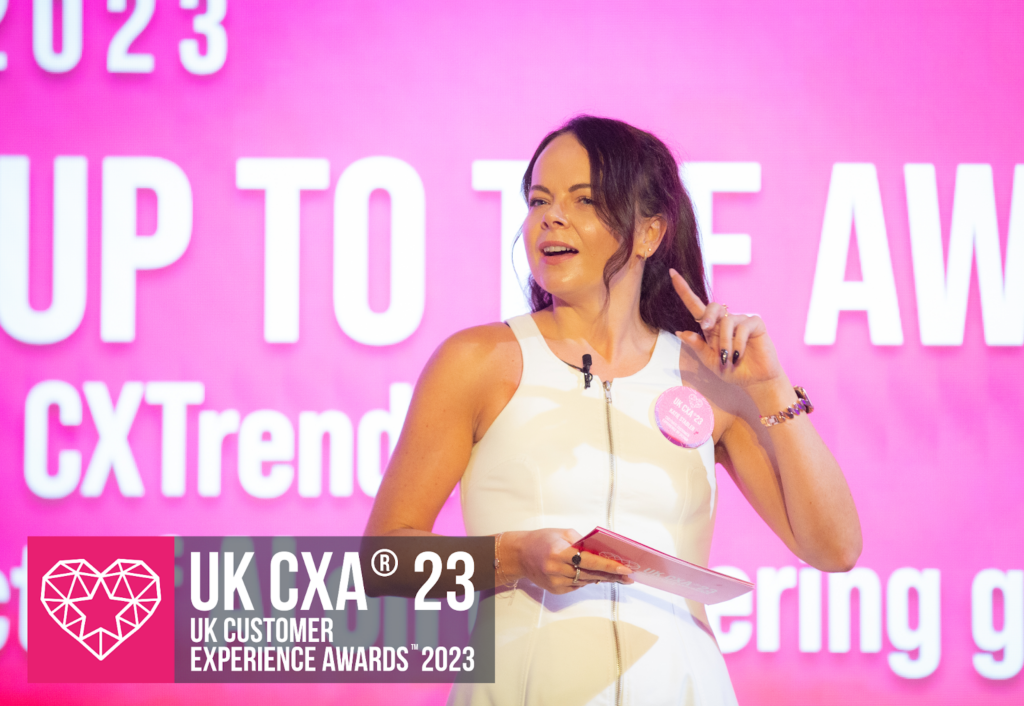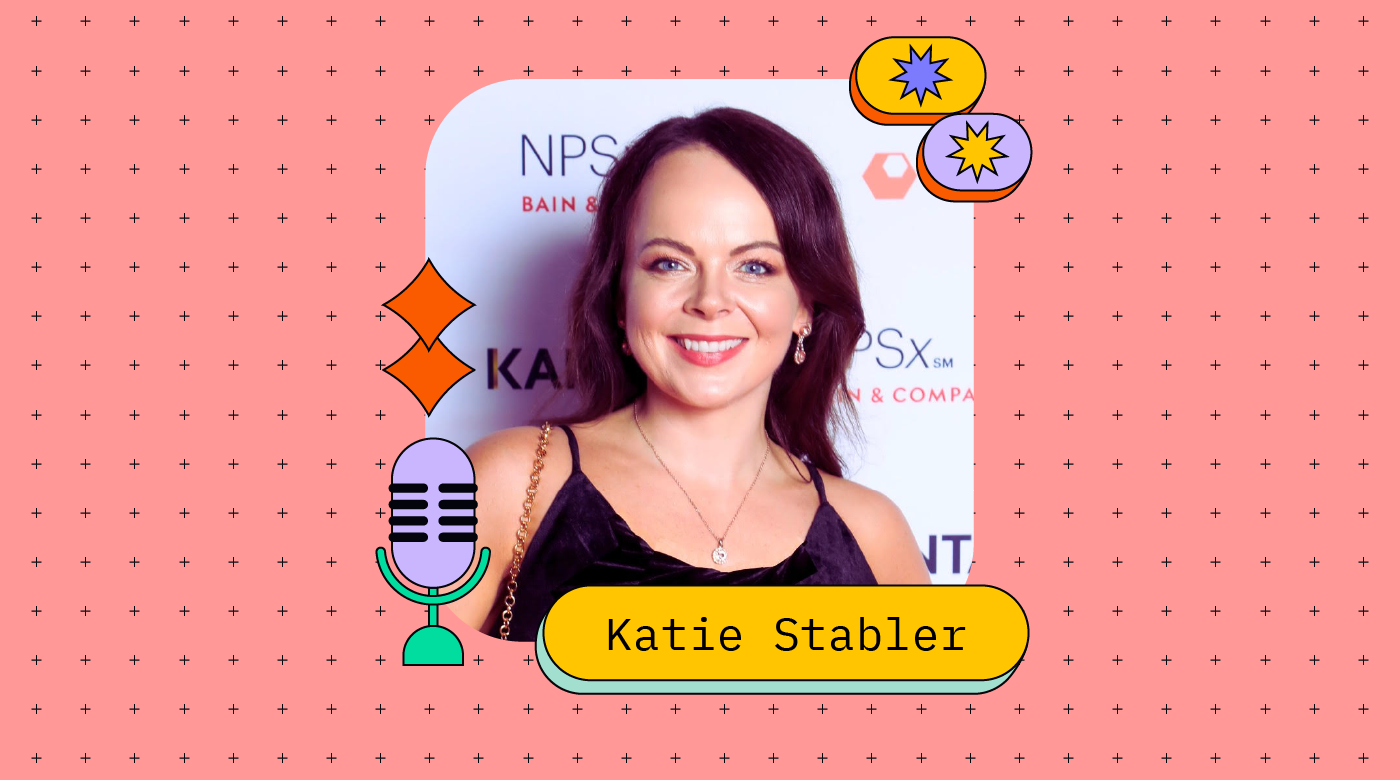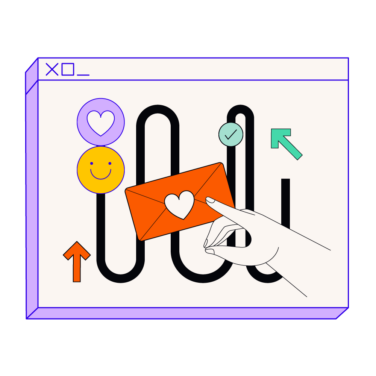Tell us the story of how you got involved in customer experience. How did your career lead you here?
Like many CX Leaders, I started my journey (way back when) in customer service. I worked in front-of-house in restaurants, behind the customer service desk in the local department store, and on the front lines in contact centres. Then after university, I spent a decade in the not-for-profit sector and although my job roles didn’t have CX in the title, I strongly believe that there isn’t a more holistically customer-centric place than a charity. Then I left my position as the Deputy CEO of a Debt Support Charity to manage the Customer Experience department for Europe's 2nd largest Debt Collection Company, I progressed to the Director of CX for a Female Membership Organisation and finally, I founded my own consultancy in 2020.
In which industries, verticals or sectors have you focused your CX career?
Memberships, Adult Education, Credit Management, Not-for-Profit, Awards, SAS, Quality Assurance, Telecoms and ICT.
Why do so many companies struggle with making CX a priority? What are some common mistakes companies make?
There are waaaaaay too many answers to this question but most consistently it’s clear that CX isn’t prioritised because organisation aren’t able to see the leafy green future in which true CX cultivation reduces their reactive nature and enable a more proactive approach. This shift in mindset and ways of working doesn’t come quickly or easily, but it does come to those who keep CX at the top of their to-do list.
The biggest mistake I see is quite simply a lack of resource allocated to CX.
You’ve been selected to give a keynote address at a major CX conference. What topic will you discuss and what major points will you touch on?
The Psychology of CX, including discussion points such as:
- Inattentinal Blindness - How we fail to see the most obvious things which leads to pants-poor CX
- Heuristics - We can’t possibly remember everything we experience so we use Heuristics (smart brain shortcuts) to help us. The Emotion Heuristic is key in CX because it’s the clever little trick we use to be able to recall those experiences which instigate the biggest emotional impact (good = we want to experience it again. Bad = avoid, avoid, avoid). But if you mention emotion in the C-suite…eyes roll.
- Rashomon Effect - The principle that we humans are unreliable when it comes to recall
The Psychology of CX is underused information within companies, but if you’re a CX Leader who wants to help your peers understand why CX is so important, this topic is a no-brainer.

Have you seen, firsthand, any AI impacts on the practice of CX? What impacts are you expecting in the next few years?
So far, only negative impacts I’m afraid. Just the standard ineffective use of the blessed bot. BUT… I have seen some awesome prototypes, including bots which not only provide a customer with self service support, but that give nuanced information based on the capacity and capability of that customer in that moment. AMAZING!
What skills have served you best in your CX career?
The ability to make friends.
I could make that sound more professional by saying the ‘ability to communicate’ and ‘engage my peers’ and yes, those skills are certainly part of it. But CX needs to infiltrate every corner of a company which means a good CX Leader needs to make friends with the folk in every department because ultimately the continued efforts and engagements are so much easier to encourage if strong relationships nestle comfortably at the core.
What’s the best advice you’d give someone just starting out in their CX career, or just starting to transition from a related discipline like call-center or customer service management?
Make friends. As per above, developing strong relationships is probably one of the most advantageous things you can do when starting a career in CX. Whether this is ensuring you are well connected in the company you work within or wether it’s networking in the wonderful CX community that exists, expanding your circle of peers and thus influence, pays dividends. Of course, you also need to ‘know your stuff’ so whilst your practicing your trade, always read, listen and watch…there’s no end of great learning material out there.
What trend do you think will be most impactful in (your niche of) the CX space over the next three years?
It’s of course hard not to say A.I. But I’m not going to. What a paradoxical time we are living in, right? We regularly see huge technological and scientific advances but globally, things are turbulent. For this reason, I believe that irrespective of our rocketing move towards serious automation, people will want connection. The trend I see as being most impactful within the next 3 years is that of maintaining a (or the feel of a) human touch.
If there’s anything else that you’d like to share with our readers, please let us know! You’re welcome to share any “hot takes” you might have on the practice of CX, or anything you feel sets you apart in the CX space.
I’m super excited to share that this year I hosted the brand new feature of Awards International CX Awards, CXTrendTalks! CXTrendTalks is the day event, the build up to the awards ceremony. This year the UK CX Awards CXTrendTalks (held in October) focused on AI and I hosted a day of great speakers and panel discussion in Wembley. The International CXAwards is going to be recorded in a London TV Studio and broadcast globally on the 16th of November.


